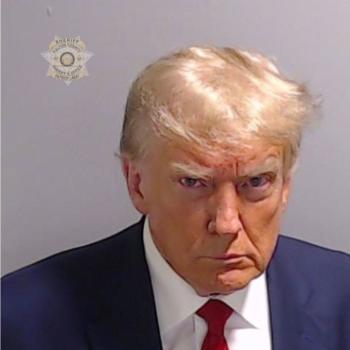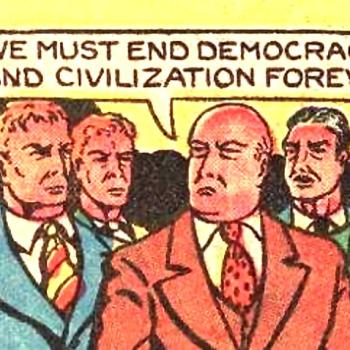Well, after 16 hours of journeying I made it home safely from San Diego back to Durham’s crisp air and cloudy skies. In any case, it is good to be home! I wanted to give some thoughts on the conference, but in order to make it more manageable to read, I am writing a series of reviews on different aspects of the conference. This one, on sessions, will be mainly focused on NT.
I arrived a 5.30pm on Friday in just enough time to make it Institute for Biblical Research’s session on Canon with John Goldingay’s discussion of the OT. This was vintage Goldingay, entertaining and generally coherent, though I was really exhausted. Most of us were looking forward to the debate that the respondent (Christopher Seitz) was going to initiate, but Seitz did not show. So, not much to say there. But, we did get a free book from IVP and free Starbuck’s coffee – not a wasted evening afterall!
I attended a session on Paul and Scripture featuring D. Swancutt, D. Campbell and Neil Elliott debating the wither and whence of Paul’s righteousness language in Romans. The session was organized with a roundtable of scholars who could respond – the roundtable included Linda Belleville, Pam Eisenbaum, Chris Stanley, Bruce Fisk, Mark Given, Roy Ciampa, Francis Watson among others. Where was Richard Hays?
Douglas Campbell argued for a strongly contigent reading of Romans that, much like Galatians, involved a polemic against Jewish Christian missionary influences that sought to impose Jewish rites of identity on the Gentiles. This approach sees the interlocutor as more a present voice than simply a rhetorical one. Though I appreciate both Campbell’s rhetorical and apocalyptic perspective on Romans, there was too much speculation in terms of a Jewish Teacher in Rome.
Swancutt’s perspective was much different drawing in Stoic elements and interested in the reception of the readers. Also, Swancutt’s reading consistently appealed to Romans 1.16-17 as the thesis of the letter – a still much debated issue.
What was funny is that the conversation would have been quite strange to NT scholars of an earlier generation, and at the same time the same ‘Romans debate’ issues are still at the forefront.
Acts and Intertextuality
On the same topic, Loveday Alexander and Dennis MacDonald discussed how and to what degree Acts engaged in classical literature. Just as critical discussion has engaged in the appropriate methodology to test the validity of finding echoes of the Jewish Scriptures in the NT (as Richard Hays has done), there is a call here for caution and clarity when finding allusions to Hellenistic texts. This was an enlightening and much needed session (I saw Tom Wright in the audience, and in another session he commented on the importance of such conversations).
Paul and Empire
Perhaps the most intense and entertaining session (for Pauline students/scholars) was Prof. John Barclay vs. Bishop Tom Wright in a debate on Paul and Empire. The SBL Paul and Politics group has, for many years, been arguing that we should be paying attention to the anti-imperial undercurrents in Paul’s language of justice, honor, power, citizenship, lordship, kingdom and so forth. Numerous books, articles, and monographs have been devoted to this endeavor. However, some scholars, such as Barclay, have begun to be wary of this new ‘fad’ (though Wright showed the interest in this as early as Deissmann). The issue is not whether we should be taking Roman and Hellenistic matters into the interpretation of Paul. Certain Barclay’s classical training would suggest that. What Barclay finds disturbing is this obsession with seeing Caesar under every rock in Paul’s rhetoric – as if the Empire was of great significance (as an enemy) in Paul’s messages. Barclay is resistant to see anti-imperial echoes behind Kyrios, Parousia, Eirene, Dikaiosyne, etc… For Barclay, if Paul wanted to say it, he would have said it. According to the Lightfoot Professor, Paul’s drama of salvation did not have as its ultimate antagonist Caesar, but the ‘archic’ powers – all those forces and powers that are aligned against God. The Empire of Rome is but one voice in a cacophany. For Paul, the Roman Empire was ‘insignificant’.
The gauntlet has been thrown down. I hope that Prof. Barclay (one of my supervisors) will soon publish on this topic so we can see the formal launching of an anti-anti-imperial school. The discussion at SBL afterward was lively and I don’t think that such a controversy in Pauline circles has arisen since the early days of the New Perspective. Durham has done it again – never a dull place for Pauline theology!
From some comments I heard around the conference, it would seem that Barclay had ‘won’ the debate. In a sense he did because Wright was not responding directly to Barclay’s concerns. But, there were clear limitations to Barclay’s illustrations and some remaining ambiguities. Wright countered by arguing that Barclay’s notion of the centrality of the ‘archic powers’ was sound, but Caesar/the Roman Empire was an instantiation of this ‘archic powers’. This I found to be a good notion. Barclay was unrelenting in his resistence, though. Barclay simply does not see Paul as interested in subtlely speaking subversively about the Empire. Also, Wright said it was a matter of being a minimalist vs. maximalist when it comes to imperial rhetoric. Barclay again refused to find middle ground. He simply did not want to be placed on a spectrum and relativized. For Barclay, Paul was almost completely disinterested in anti-imperial double-talk. When Barclay was launching his attacks, I saw a lot of nods of agreement in the audience including B. Gaventa sitting nearby (who sometimes audibly wispered ‘yes’, ‘that’s right’ as if amening a good sermon!). It would seem that some of the greatest minds in Pauline scholarship will be at loggerheads on the center of Paul’s rhetoric. What is particularly interesting is that, in this debate, there is no ‘clear’ side for evangelicals to line up on! Maybe this will be a more interesting debate than New Perspective after all! Personally, I lean towards agreement with Barclay, but I think that such terms parousia and such phrases as ‘peace and security’ are tricky and it would have been very challenging for Paul to employ such loaded words/phrases without anticipating a subversive interpretation by his audiences. How could he prevent that? And if he couldn’t, why did he use it at all when he could have easily found other ways to communicate the same things without over-loading the terminology! I am sure my inclinations are shared by others – cautious, but open to what Barclay is saying.
I would like to see a debate start even on my blog on this, but I have trouble articulating well Barclay’s position. If I can get a hold of his paper (or some summary of it), I will post it. Here is a question, what are the texts in Paul that are most seemingly overt anti-imperial statements? I would ‘peace and security’ (1 Thess 5.3) is up there. What else? Please post comments. I would like to take these to Barclay and see how he would respond.
Conclusion
SO, all said and done, this was a paradigm shattering SBL so well worth the work and cost. More reflections to come.















